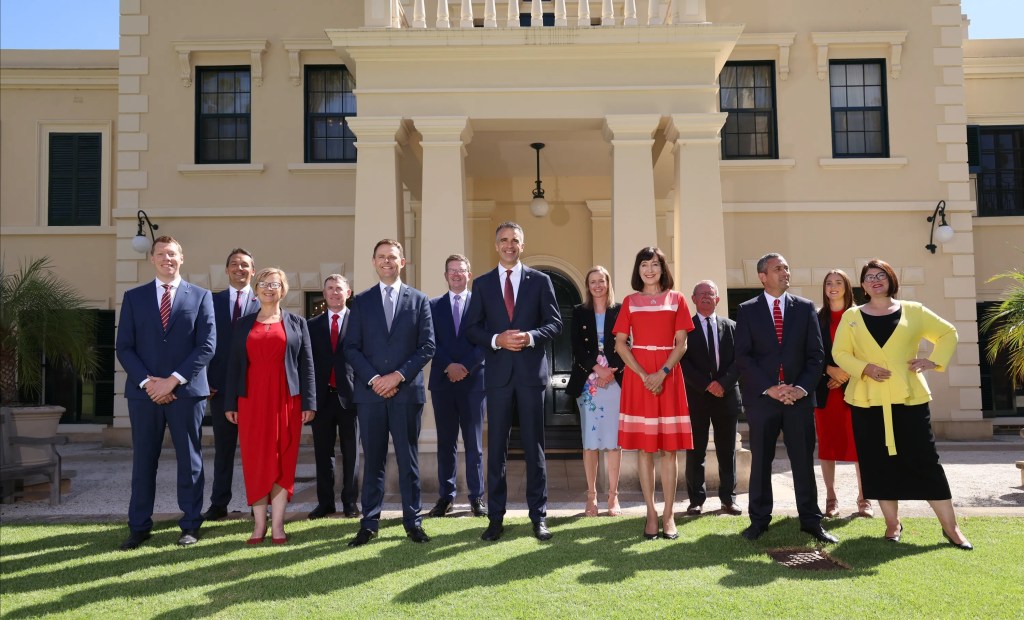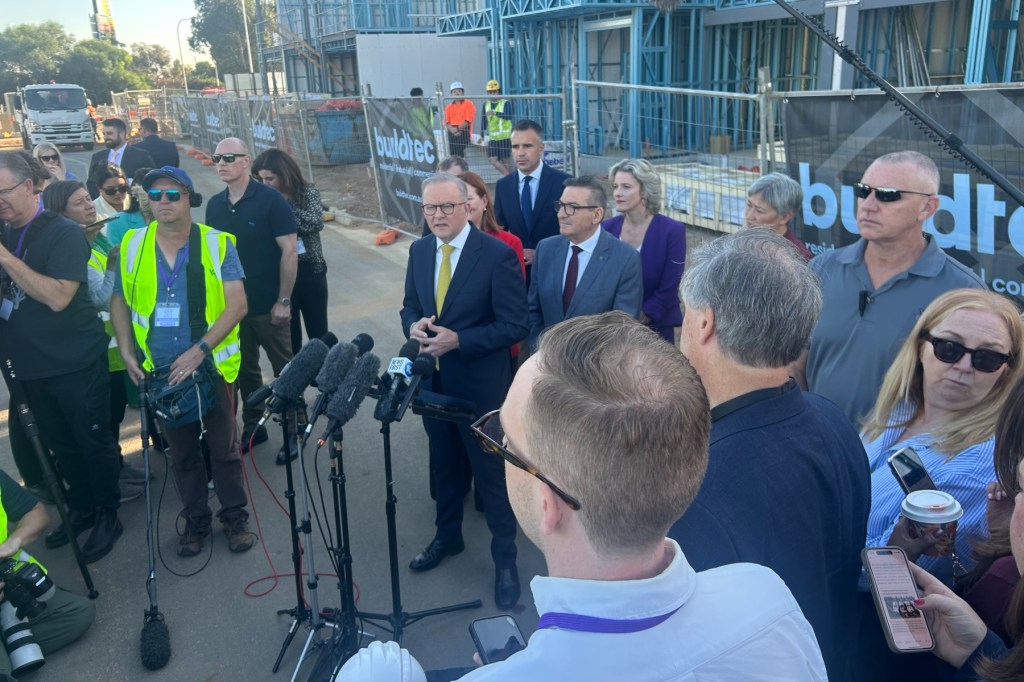If the Premier won’t be transparent, the Auditor-General should take action
The State Government’s decision to deny the Auditor-General access to Cabinet documents is a disgraceful accountability shirk, writes Rex Patrick, who argues the Auditor-General has the power to take action, if the Parliament won’t.

In his annual report tabled recently in State Parliament, Auditor-General Andrew Richardson revealed the State Government had blocked multiple requests for information “that in my opinion should not be regarded as confidential, just because they are attached to Cabinet submissions”.
Not having access means he can not give an “audit opinion” on some of the biggest projects in South Australia – such as the North-South Corridor upgrade and the new Women’s and Children’s Hospital.
Here is why I believe the Government’s approach is inconsistent with the doctrine of Cabinet confidentiality, good governance and integrity – and how it can be fixed.
Doctrine of Cabinet confidentiality
Even though Cabinet is not mentioned in either state or federal constitutions, the doctrine of Cabinet confidentiality has been recognised by state Supreme Courts and the High Court of Australia.
The doctrine doesn’t exist to protect the information that is taken to Cabinet, rather it exists exclusively to preserve the ‘”collective responsibility of the Cabinet” and the “solidarity of the Cabinet”.
The doctrine of Cabinet confidentiality allows ministers to make their own submissions and arguments to Cabinet that differ from other ministers. But once the Cabinet decides on a way ahead, either by consensus or majority, all Cabinet members must publicly unite behind the decision, or resign from the Cabinet.
If the Cabinet is seen to be divided that could give rise to a vote of “no confidence” in the House of Assembly, meaning the Government falls.
Because Cabinet submissions and deliberations are held secret from the public, no one gets to see any confidence-eroding ministerial division. Ministers stand, or indeed fall, together.
You might like
Auditor-General access
In accordance with the Public Finance and Audit Act 1987, the Auditor-General reports directly to Parliament on the audits of state government agencies covering financial reports and operations, controls and matters of public interest.
The Auditor-General’s audits identify whether government services and activities are effective, efficient and the expenditure of taxpayers’ dollars properly accounted for.
The Auditor-General requires access to Cabinet documents to be able to do his job properly. It can’t be put more simply than that.
Cabinet decisions and the submissions that give rise to them determine public expenditure and shape government policies, programs and projects. They are the core documents of every government: without those documents the Auditor can’t properly report to Parliament and the South Australian public about whether the Government is spending money properly and in the public interest.
Provided the Auditor doesn’t reveal division in the Cabinet in any reports he might make to the Parliament, there is no conflict with the Westminster system of government as Premier Peter Malinauskas has tried to spin.
Indeed, Auditors-General around the country, including in the federal domain, NSW, Victoria and the ACT have access to Cabinet documents and those jurisdictions all operate under the Westminster system.
Malinauskas is also plainly wrong in saying “the only people in SA who are entitled to cabinet documents are members of the cabinet themselves”. The SA Ombudsman accesses Cabinet documents regularly to deal with FOI disputes.
Remedy one: Legislate
One remedy to this unacceptable situation is for the Parliament to amend the Public Finance and Audit Act to expressly state that the Auditor-General has entitlement to access Cabinet documents. That’s what Opposition leader David Speirs is doing with his Public Finance and Audit (Auditor-General Access to Cabinet Submissions) Amendment Bill.
The Bill has passed the Legislative Council but is now stuck in the Lower House. The Opposition doesn’t have the numbers in the House of Assembly and so the Bill will not pass into law.
Remedy two: Don’t legislate
Stay informed, daily
Another remedy is for the Legislative Council to pick out a Bill, or a set of Bills, of importance to the Government and refuse to deal with them until such time as requests made by the Auditor have been fulfilled.
This would draw attention to the issue and ultimately cause the Premier to back down from his unsustainable position.
This would require gathering together the cross bench to support such a strategy, but that’s possible given the cross bench support for the Auditor-General Access to Cabinet Submissions Bill.
Remedy three: Litigate
A final option is for the Auditor-General to issue a summons to the Premier under section 34 the Public Finance and Audit Act to require the production of Cabinet documents and then seek to have the summons enforced. A refusal to respond to the summons would be an offence, which carries a jail term of three months.
The legal defence available to the Premier under the Act is to have a ‘reasonable excuse’. His reasonable excuse would likely be his self-serving and legally incorrect claim that complying with the summons would breach Cabinet confidentiality.
Whilst this course would be considered politically explosive, the Act clearly contemplates the charging of officials, as it is officials that are most likely to have information the Auditor needs.
Maybe it’s time for the audit watchdog to show it can bite, not just bark.
Accountability loss
Right now, the Premier has created an accountability vacuum.
The Auditor-General has been unable to carry out his job. He’s been unable to properly examine potential pork barrelling by Labor at the last election (there is to be no “Sport Rorts” or “Car Parks” reports here in SA), nor the North-South Corridor project and new Women’s and Children’s Hospital, the latter two of which are costed at $18.6 billion in the 2023-24 budget.
The Auditor-General will not be able to examine in sufficient detail the $593 million hydrogen jobs plan, nor any other project dealt with by Cabinet (the Cabinet must sign off on all high-value programs).
This isn’t some obscure political and legal biff: it’s about democratic accountability for the expenditure of hundreds of millions, indeed billions of taxpayers’ dollars.
The situation is a disgrace.
And it’s a disgrace that the Auditor-General cannot completely shed responsibility for, given his failure to issue and enforce summons.
Something needs to happen. There are remedies available. It’s unlikely the Premier will move from his harmful position, so a bit of fortitude by the Legislative Council or a bit of courage by the Auditor General is required.
Rex Patrick is a former Senator for South Australia and led a successful challenge against Prime Minister Scott Morrison’s claim of secrecy over national Cabinet documents.








